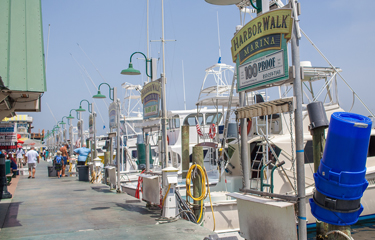VMS requirement deadline for Gulf of Mexico charter operators pushed back

Charter-fishing operators in the Gulf of Mexico will now have more time to install tracking systems meant to help with fisheries management.
NOAA Fisheries published the extension regarding the Southeast For-Hire Integrated Electric Reporting Program in the Federal Register on Tuesday, 2 November. Charter operators with federal charter permits now will have until Tuesday, 1 March, 2022, to have a vessel monitoring system (VMS) installed on their boats.
In September 2021, federal officials set a 13 December implementation deadline.
According to an email sent last week by the Gulf of Mexico Fishery Management Council, NOAA Fisheries pushed back the deadline to test a third VMS, give more time for an ongoing lawsuit to proceed, and ensure that boats would have units installed before the spring break season begins.
Officials first announced the requirement in July 2020, and the New Civil Liberties Alliance (NCLA) filed a class-action suit in response a month later claiming the mandate requires 24-hour surveillance without due cause.
In a statement last year, the nonprofit law firm equated the VMS systems to an ankle bracelet and questioned why the government would need to monitor vessels and vessel owners so fully.
The 11-week delay in implementing the system will give a federal judge a chance to review briefs filed by both parties in the suit. The NCLA and NOAA Fisheries counsel have agreed to the expedited review.
“While we appreciate the federal regulators’ decision to delay this rule, they still have not explained how 24-hour tracking of charter boats – which account for a minuscule amount of gulf fishing – promotes conservation, especially since boat captains already report the number and types of fish caught in real time,” NLCA Litigation Counsel Sheng Li said.
The gulf council sought the VMS requirement to improve its tracking of recreational catch-limits as part of its fisheries management responsibilities. According to NOAA Fisheries, VMS units are expected to help deliver better information on the number of trips made by charter boats. That could potentially help with obtaining more-accurate stock assessments, as it would give officials better data regarding the charters’ landings and locations.
NCLA, which represents more than 1,300 charter operators, asked federal officials for a 90-day delay because of the ongoing litigation.
However, in the Federal Register announcement, NOAA Fisheries said it “anticipates an increase in gulf for-hire trips during the March 2022 spring break season, but will not have the ability to effectively validate those trips if the VMS requirements are not implemented by 1 March, 2022.”
Photo courtesy of Stephanie A Sellers/Shutterstock






Share